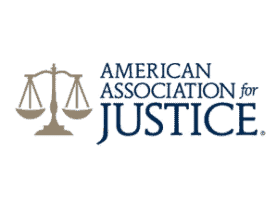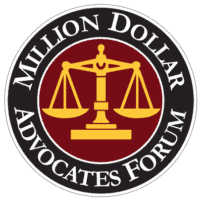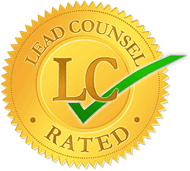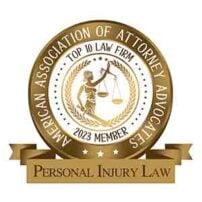Negligence Lawyer in NYC
The fundamental element in proving a personal injury claim is demonstrating that the defendant acted negligently. In order to adequately determine that culpability, the concept and nature of negligence must be understood appropriately in the context of legal terms. Negligence is just one of many categories of tort law, the body of law that deals with civil actions between persons who have harmed one another. Unlike other parts of tort law, negligence deals with harm caused by the carelessness of one person, rather than intentions to harm. While this harm may not be intentional on the part of the party who caused it, he or she can still be held liable for it under the principle of negligence.
Negligence claims are founded on the understanding all persons, regardless of their relationship to one another, have a duty to exercise a certain degree of care. The degree of care required is what differs based on the nature of the relationship between parties. For example, two drivers on the same road have a duty of following traffic laws in order to keep from harming themselves or one another. If one fails to follow traffic laws and the other is injured because of it, a claim of negligence can be made and the one in the wrong can be compelled to pay for the damages. That degree of care is significantly increased for professionals or authorities with specialized occupations, such as public transportation operators or medical professionals. The standard of care for such persons is significantly higher than for laymen.
New York Personal Injury And Negligence
In the United States, claims of negligence are made under the category of personal injury. In a personal injury claim, there are three key elements that must be shown in order to prove negligence on the part of the defendant. The first element is the duty of care. This involves proving that the defendant owed a duty of care and demonstrating what the nature of that duty was. The duty of an employer would differ, for instance, from that of a product manufacturer.
Once the duty of care has been established, showing that the defendant owed it to the plaintiff to act to a certain standard, the plaintiff must then show that the duty was breached. A breach of duty means the individual being accused of negligence failed to exercise the established standard of care toward the injured party. Using the same example as above of the two drivers, this would mean that the duty of care the one driver owed to follow traffic laws was broken by his or her being distracted by an incoming cellphone call. By answering that phone call, in violation of traffic laws against the use of handheld devices, the driver breached his or her duty to exercise a reasonable amount of care while driving.
Simply proving a breach of duty does not mean the claim of personal injury will be granted. The plaintiff must then show the breach was the direct cause of injury to him or her. Simply showing that someone failed in duty does not show they caused the injuries. The plaintiff must draw a clear line from the breach to the actual injury. For example, the injured driver must demonstrate to the judge or jury that when the other driver reached for his ringing cellphone, his vehicle drifted into her lane and caused her to run off of the road and hit the light pole. That would be direct causation of injuries and would prove negligence on the part of the defendant.
Negligence And Damages
The purpose of filing a claim of negligence, or in this case a personal injury claim, is to recover compensation for any damages caused by the negligent party. In order to recover compensation, there must be damages to claim. For example, if the plaintiff’s car simply ran off of the road and into a field, she would not have any damages to claim even though she proved the other driver was negligent. The purpose of a personal injury claim is to determine how much the defendant owes the injured party for having failed his or her duty to exercise care. If there was no damage, there is nothing to repay.
Damages in a personal injury claim consist of expenses and losses associated with the accident. Emergency medical expenses, hospitalization, medication, loss of wages, and property damage can all be claimed as damages in a personal injury claim. In addition to actual injury-related costs, losses concerning the actual experience of pain and suffering, inability to enjoy life as before, and emotional trauma can also be included in the claim for compensation. While money cannot erase the traumatic experience, it is a means by which the responsible party can recompense the injured victim.
Contact The Law Office Of Richard M. Kenny
If you were injured in an accident and feel another person’s negligence contributed to those injuries, you may have grounds to file a personal injury claim. Depending on the circumstances of the accident, a claim can either be negotiated through a settlement with the other person’s insurance company or through a court trial. In either situation, it is extremely important you equip yourself with strong and aggressive legal representation. A New York City personal injury attorney will be able to guide you through the process and by utilizing their knowledge of the law in New York, increase your chances of obtaining the maximum recovery. For more information about how you can find assistance in filing a successful personal injury claim of negligence, contact The Law Office of Richard M. Kenny and discuss your situation with a member of our legal team.











